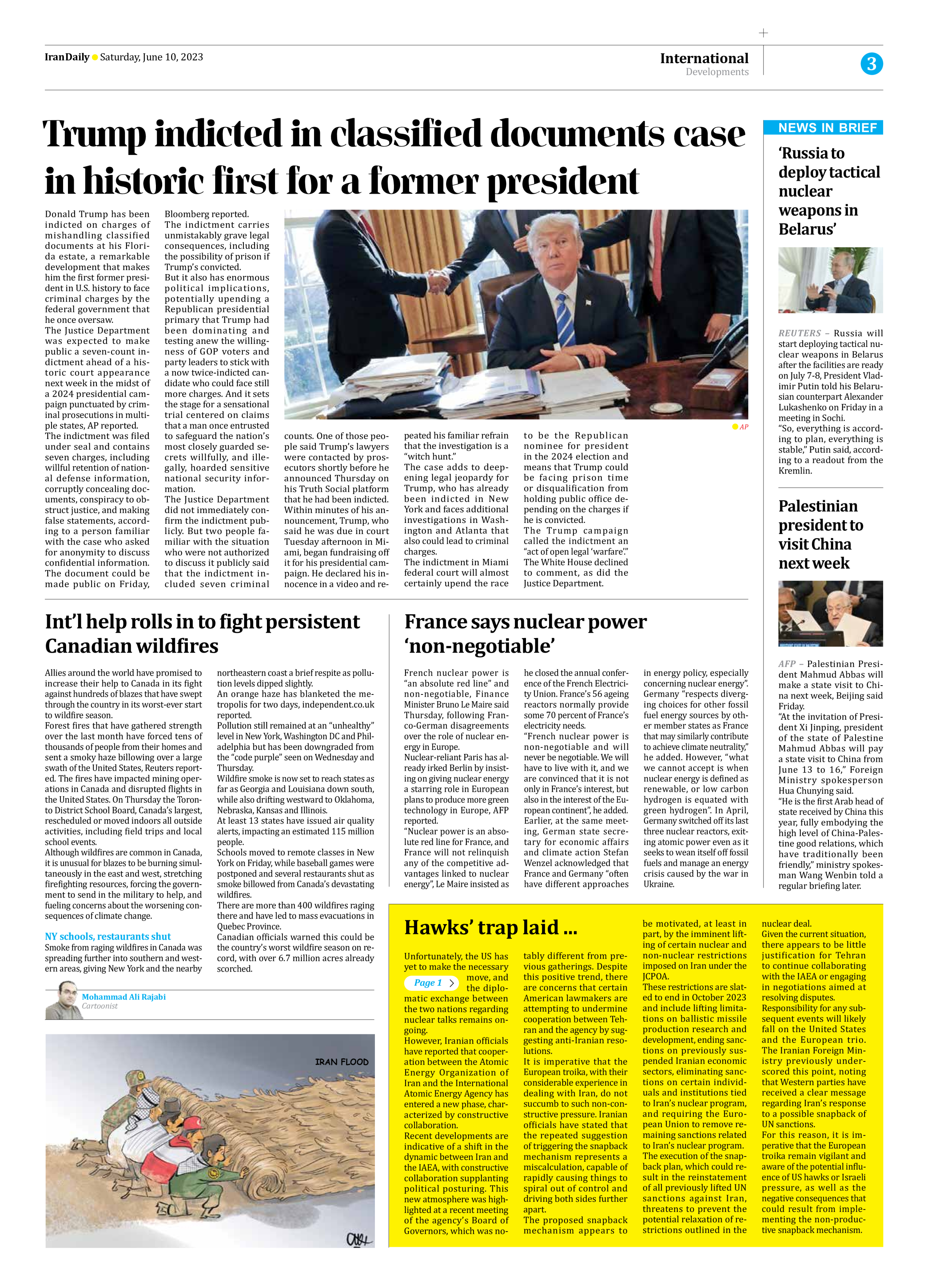
Hawks’ trap laid ...
Page 1
Unfortunately, the US has yet to make the necessary move, and the diplomatic exchange between the two nations regarding nuclear talks remains ongoing.
However, Iranian officials have reported that cooperation between the Atomic Energy Organization of Iran and the International Atomic Energy Agency has entered a new phase, characterized by constructive collaboration.
Recent developments are indicative of a shift in the dynamic between Iran and the IAEA, with constructive collaboration supplanting political posturing. This new atmosphere was highlighted at a recent meeting of the agency’s Board of Governors, which was notably different from previous gatherings. Despite this positive trend, there are concerns that certain American lawmakers are attempting to undermine cooperation between Tehran and the agency by suggesting anti-Iranian resolutions.
It is imperative that the European troika, with their considerable experience in dealing with Iran, do not succumb to such non-constructive pressure. Iranian officials have stated that the repeated suggestion of triggering the snapback mechanism represents a miscalculation, capable of rapidly causing things to spiral out of control and driving both sides further apart.
The proposed snapback mechanism appears to be motivated, at least in part, by the imminent lifting of certain nuclear and non-nuclear restrictions imposed on Iran under the JCPOA.
These restrictions are slated to end in October 2023 and include lifting limitations on ballistic missile production research and development, ending sanctions on previously suspended Iranian economic sectors, eliminating sanctions on certain individuals and institutions tied to Iran’s nuclear program, and requiring the European Union to remove remaining sanctions related to Iran’s nuclear program.
The execution of the snapback plan, which could result in the reinstatement of all previously lifted UN sanctions against Iran, threatens to prevent the potential relaxation of restrictions outlined in the nuclear deal.
Given the current situation, there appears to be little justification for Tehran to continue collaborating with the IAEA or engaging in negotiations aimed at resolving disputes.
Responsibility for any subsequent events will likely fall on the United States and the European trio. The Iranian Foreign Ministry previously underscored this point, noting that Western parties have received a clear message regarding Iran’s response to a possible snapback of UN sanctions.
For this reason, it is imperative that the European troika remain vigilant and aware of the potential influence of US hawks or Israeli pressure, as well as the negative consequences that could result from implementing the non-productive snapback mechanism.







